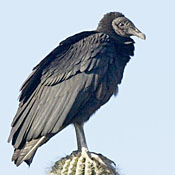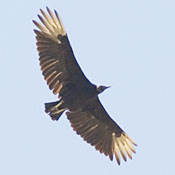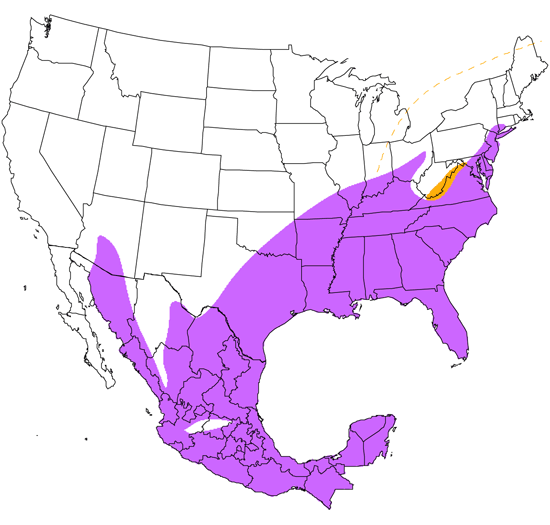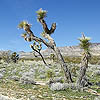Black Vulture
Coragyps atratus

Hawk Like

Length: 25 in. (64 cm )
The garbage collector of the bird world, the Black Vulture is especially versatile in exploiting human garbage and detritus. It occurs in open savanna, agricultural fields, and garbage dumps where it gathers, often in large numbers, to eat and roost. The nest is in a tree stump or dense vegetation on or near the ground. Often several to many pairs nest close together, and during the winter many family groups roost together in isolated tree groves during the night. Rarely this vulture will capture and eat small birds, mammals and reptiles, but its main food is carrion and human garbage. In the desert southwest, it is most often seen soaring over cliffs and small valleys on thermals as it searches for dead carrion.
The four-digit banding code is BLVU.
Bibliographic details:
- Article: Black Vulture
- Author(s): Dr. Biology
- Publisher: Arizona State University School of Life Sciences Ask A Biologist
- Site name: ASU - Ask A Biologist
- Date published: 13 Jul, 2017
- Date accessed:
- Link: https://askabiologist.asu.edu/activities/bird/black-vulture
APA Style
Dr. Biology. (Thu, 07/13/2017 - 15:38). Black Vulture. ASU - Ask A Biologist. Retrieved from https://askabiologist.asu.edu/activities/bird/black-vulture
Chicago Manual of Style
Dr. Biology. "Black Vulture". ASU - Ask A Biologist. 13 Jul 2017. https://askabiologist.asu.edu/activities/bird/black-vulture
Dr. Biology. "Black Vulture". ASU - Ask A Biologist. 13 Jul 2017. ASU - Ask A Biologist, Web. https://askabiologist.asu.edu/activities/bird/black-vulture
MLA 2017 Style
Be Part of
Ask A Biologist
By volunteering, or simply sending us feedback on the site. Scientists, teachers, writers, illustrators, and translators are all important to the program. If you are interested in helping with the website we have a Volunteers page to get the process started.






